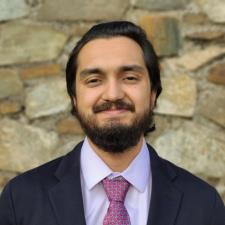As a PhD candidate, graduate teaching assistant, and former teaching volunteer, I have accumulated a wealth of tutoring and teaching experience. My students have varied in age, background, and learning goals--from economics undergraduates encountering theory for the first time to working professionals looking to sharpen their English language skills. I have a wide range of personal interests and areas of expertise, including economics, political science, social studies, data analytics,...
As a PhD candidate, graduate teaching assistant, and former teaching volunteer, I have accumulated a wealth of tutoring and teaching experience. My students have varied in age, background, and learning goals--from economics undergraduates encountering theory for the first time to working professionals looking to sharpen their English language skills. I have a wide range of personal interests and areas of expertise, including economics, political science, social studies, data analytics, writing, and public speaking.
I expect to receive my PhD in Economics from American University in December, 2025. I also hold a Master's in Economics from American University and a Bachelor of Arts (summa cum laude) in Political Science and Russian from Truman State University. Throughout my academic career, I have received numerous scholarships, departmental honors, and scholastic awards. I have been a high-achieving student for more than two decades of my life and it is my intention to be a lifelong student even as I transition into my role as an educator.
Having taught students both in and out of the classroom, my teaching philosophy is centered on breaking down the conventional teacher-student hierarchy. Learning is about building conceptual structures--it is about understanding material as it exists in the context of broader systems of ideas. My role as the teacher is not to do the work for the student, but rather to enable the student to build a foundation and frame on their own. What does this mean practically? It means not "depositing" information in the student's mental bank, but rather holding a back-and-forth dialogue with questions, exercises, and examples so we can both arrive at a firm understanding of the material in question. In my experience, this type of active (rather than passive) learning results in higher retention and recall, which is crucial for student performance in the current course as well as in long-term academic success.

